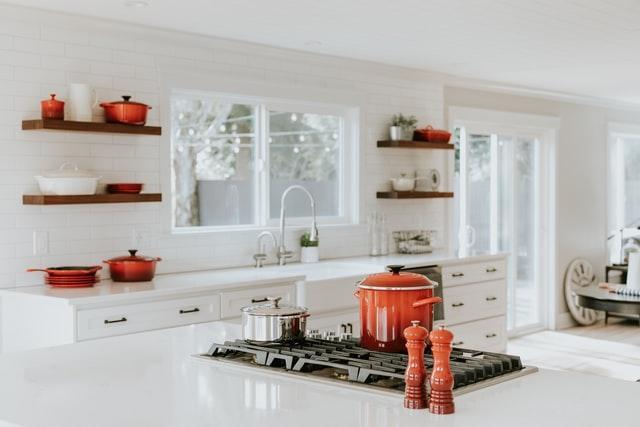A countertop can significantly impact the way your kitchen or bathroom looks, and it can also affect how much it costs to remodel your space. Suppose you’re looking to redesign your home. In that case, there are many options available to you when choosing the suitable material for your countertops, including granite, quartz, and various other types of stone. As you consider what material you want to use in your design-build project, remember that each option has its strengths and weaknesses; pay close attention to these details when you’re choosing what material to use in your remodel or new construction project.
Box™ design build company based in Auckland, New Zealand gives its views on the best options in benchtops.
Engineered stone
Our number one material of choice for benchtops. At Box™, we tend to use Silestone because they offer a good range of colours and no other company does a matte finish. Depending on the colour (black is an exception), matte-finish benchtops are much easier to keep clean. Silestone is made up of 94% quartz, and the company has been around for 25 years, so they’re reliable.
Engineered stone comes with a polished surface or a suede (matte) finish. It’s not necessarily cheaper than real stone (say granite) unless you go for the more affordable options. We don’t advise that because less-expensive versions can chip easily.
Dekton is an engineered stone (the marketers call it an ‘ultra-compact surface’) with a component of recycled materials. It’s a state-of-the-art product that is super strong, scratch- and UV-resistant and can take heat up to 600 degrees C! The fact that you can plonk a hot pot down on it without fear is one reason we love for benchtops – another is that the colour never fades. Dekton comes in 15 colours and in large format, so it can be shaped to bring the beauty of seamless design to your benchtop.
Stainless steel
People tend to have a love/hate relationship with stainless steel. It’s a product that comes in three finishes: classic, linen and brushed. The advantage of the linen finish (which looks like it has a weave through it) is that it doesn’t show up fingerprints or scratches as easily, but it is more expensive. In my opinion, when a brushed surface gets scratches on it, they look out of place, whereas the classic finish stands the test of time. You have to be patient, though: a classic finish looks great in the first two weeks you have it, then it gets scratched, and finally, after three years or so, it takes on a lovely patina of age.
Acrylic
Non-porous (and so super hygienic) and seamless, acrylic surfaces such as Corian have the added advantage of being re-buffed down the track should they become scratched or stained. They’re actually plastic, so they can look cheap and nasty if you opt for a lesser-quality version. Acrylics can be shaped to mould a sink and drainage board insert them directly into the benchtop. More expensive than engineered stone.
Granite and marble
Unless you have sourced a particular piece – a beautifully veined slab that has won your heart – we don’t usually recommend granite because, believe it or not, it’s not as strong as engineered stone and needs to have seams or joints which can look unsightly. Granite is scratch and bacteria-resistant, although, being a natural product, it can stain and needs to be regularly resealed. Marble can be elegant and beautiful, but it’s a relatively soft stone that stains easily (especially with lemon juice). If you’re precious about your benchtop, I will opt for something less prone to this.
Laminates
These are budget options that Box™ seldom recommends. One good trick with a laminate bench is choosing a dark grey laminate and then incorporating a stainless-steel edge, which tricks the eye into seeing the top surface as stainless.
Timber
Since timber warps and cracks with exposure to moisture, as a residential architect, we don’t recommend it as a kitchen benchtop surface, especially in a home with a clean-lined, contemporary aesthetic. It is also dents and chips easily.
Concrete
Industrial in style, concrete benchtops suit the modernist designs of Box™, but they are heavy, so the floor structure and cabinetry need to be up to the job.
